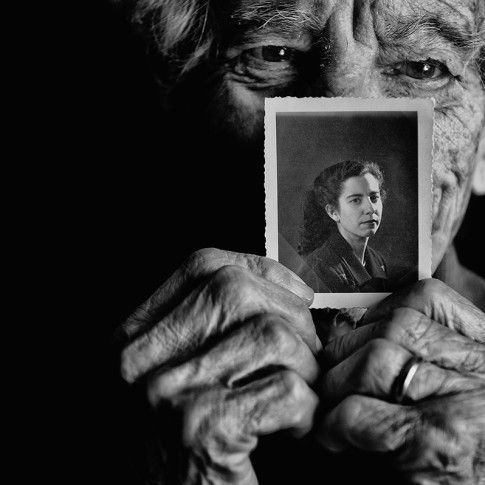Can AI Write Authentic Poetry?
"Time, with its subtle shifts spanning centuries, holds little significance in the realm of poetry. Mary Oliver's words offer a comforting embrace, particularly in an era marked by swift transformations, finding solace in the unhurried pace of certain elements. Yet, amidst rising oceans and falling mountains, nothing remains untouched by change, not even the art of crafting poetry.
The fading presence of the author in 20th-century literary criticism can be traced back to the surrealists and their "exquisite corpse" game. They believed that poetry could emerge not only from individual unconscious minds but also from the collective consciousness of many, working together with minimal knowledge of each other's contributions. This led to the birth of found poetry, an artistic approach akin to creating collages from collected text fragments.
To craft a found poem, individuals gather diverse text snippets encountered anywhere, skillfully stitching them together through editing to form a poetic tapestry. While it may be challenging to pinpoint the sole "poet" behind a found poem, as the initial creation lacks conscious guidance, humans play a role in selecting and arranging these fragments. The question arises: Can humans be further pushed into the background, or even excluded from the creative process?
The 20th century witnessed a groundbreaking technological leap: the advent of digital computers, leading to the rise of artificial intelligence (AI). AI, a force reshaping our world in unpredictable ways, has sparked anticipation of a potential Singularity, where AI surpasses human general intelligence. In this landscape of change, the least consequential aspect of AI is its foray into poetry creation.
Examining the current state of AI-generated poetry reveals a dynamic, evolving landscape. AI's ability to learn from vast datasets using deep learning techniques challenges the notion that computer programs merely follow fixed rules. Instead, they exhibit a capacity for creativity, with the question arising of whether AI programs should be credited as coauthors in scientific papers.
Considering the essence of poetry, which blends compelling content with aesthetically pleasing wordplay, sound similarities, and form constraints, AI approaches poetry generation using a generate-then-select method. While prolific in generating text, AI programs often require human assistance in selecting poetic gems from the vast pool of computer-generated content. The debate intensifies over whether an authentic creator must possess the ability to evaluate their own creations, as suggested by Oscar Wilde.
One application of computers in poetry involves providing a platform for human collaboration, as seen in crowdsourcing websites. However, the central question persists: Can computers autonomously write poetry or contribute significantly as partners with humans? AI excels at generating poems with minimal constraints, thriving in the realm of less structured, free verse poetry.
AI's entry into the realm of haiku, a form of poetry, dates back to the 1960s. Some programs, rather than composing haiku, search for found poems within the constraints of seventeen syllables. The juxtaposition of seemingly mundane phrases can result in unexpected poetic beauty. While AI poets have progressed from retrieving to generating text, their success is often measured in the context of less structured forms.
AI's prowess in utilizing big data and statistical analyses to identify linguistic patterns, metaphors, and word associations has led to its integration into the humanities. Machine learning applications assist in analyzing word meanings, literary metaphors, and historical periods in literature. As AI continues to advance, writers may access automated tools such as thesauri, rhyming dictionaries, and metaphor suggesters.
Despite AI's impressive accomplishments, the evaluation of its poetry raises crucial questions. The challenge lies in discerning whether AI-generated poems can reach the level of human artistry. The generate-then-select method, akin to a proverbial monkey at a typewriter, prompts skepticism regarding the authenticity of AI poetry. While AI may excel at generating vast amounts of text, the critical human touch in selecting meaningful pieces remains pivotal.
AI's foray into creative realms extends beyond poetry, with the internet fostering collective collaboration on projects. Crowdsourcing platforms enable individuals to contribute to collective poems, blurring the lines between authorship and collaboration. However, the question remains: Can AI surpass its current capabilities and evoke genuine emotional responses in human readers through poetry?
Delving into the philosophical realms of cognitive science and AI, we encounter the concept of functionalism, which defines intelligence based on the achievement of specific functions. AI excels at tasks such as playing chess, demonstrating functional competence. However, as we approach more complex cognitive functions tied to human experiences, such as understanding, emotion, and consciousness, the challenges intensify.
The most elusive of these challenges is consciousness, often deemed the Intractable Problem. While AI can simulate certain aspects of human cognitive functions, the phenomenal aspects of consciousness, such as subjective experience and emotional depth, remain elusive. This poses a fundamental question: Can AI, devoid of inner experience, authentically write poetry that resonates on a deep emotional level?
The contention arises that AI's achievements, while remarkable, fall short of authentic poetry creation. The absence of inner experience, shaped by a lifetime of memories, means AI lacks the essential elements needed for genuine poetic expression. Poetry, grounded in subjective experience rather than objective reality, requires a sense of poetic truth that AI, devoid of inner experience, cannot fully grasp.
As AI continues to evolve and redefine boundaries, the question of whether AI-generated poems can transcend parody and evoke profound emotional responses in human readers remains open. While AI may excel at mining existing metaphors, the challenge lies in whether it can generate truly novel metaphors that go beyond variations of those crafted by humans. As the debate continues, the prospect of AI unlocking uncharted metaphors, as envisioned by Borges, adds a layer of intrigue to the ongoing exploration of AI's creative potential."


Comments
Post a Comment